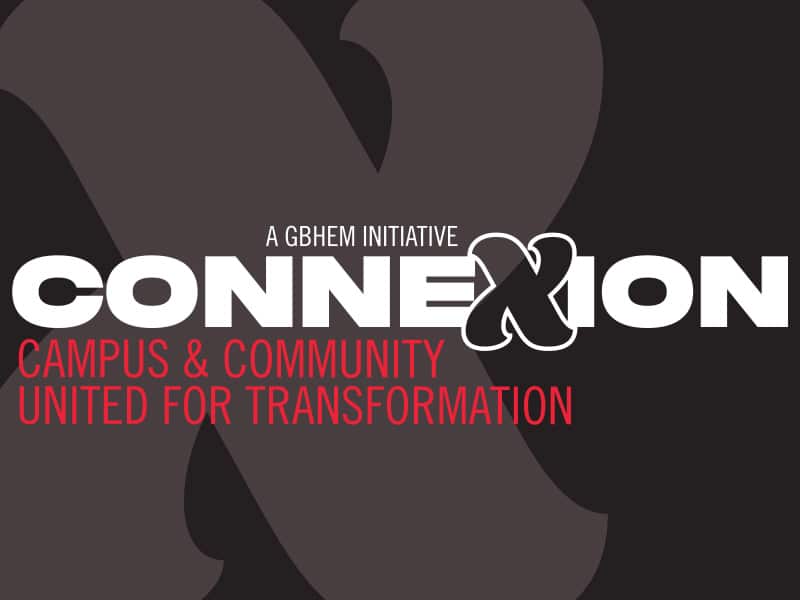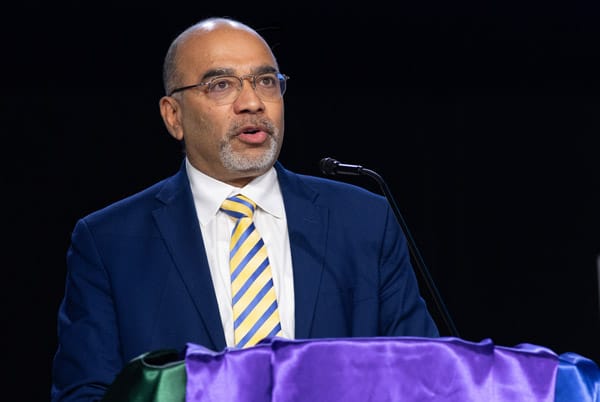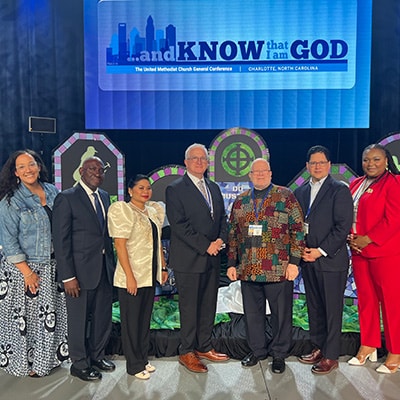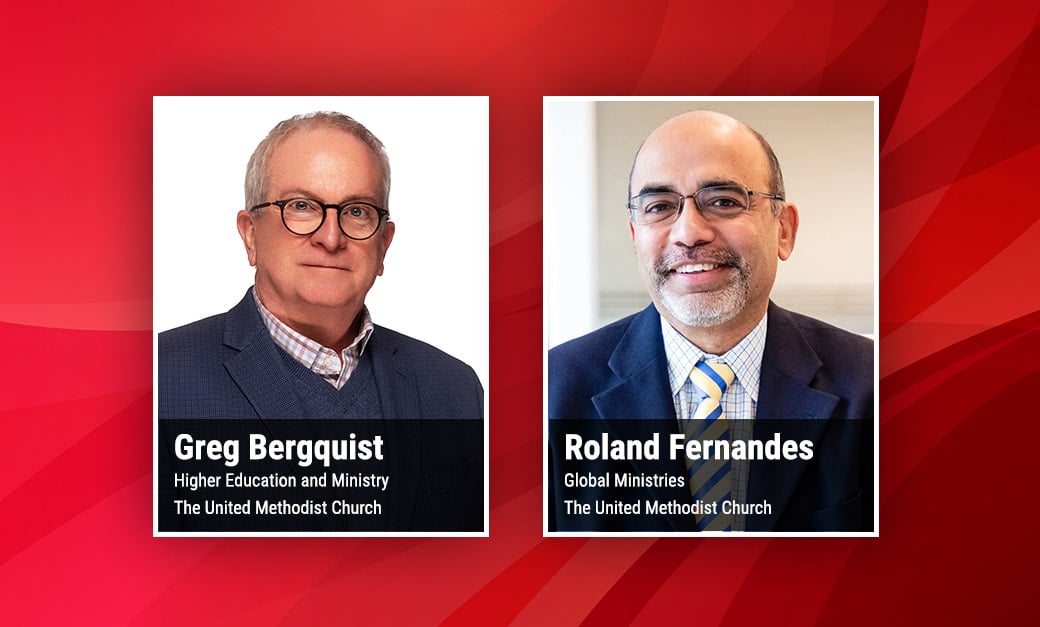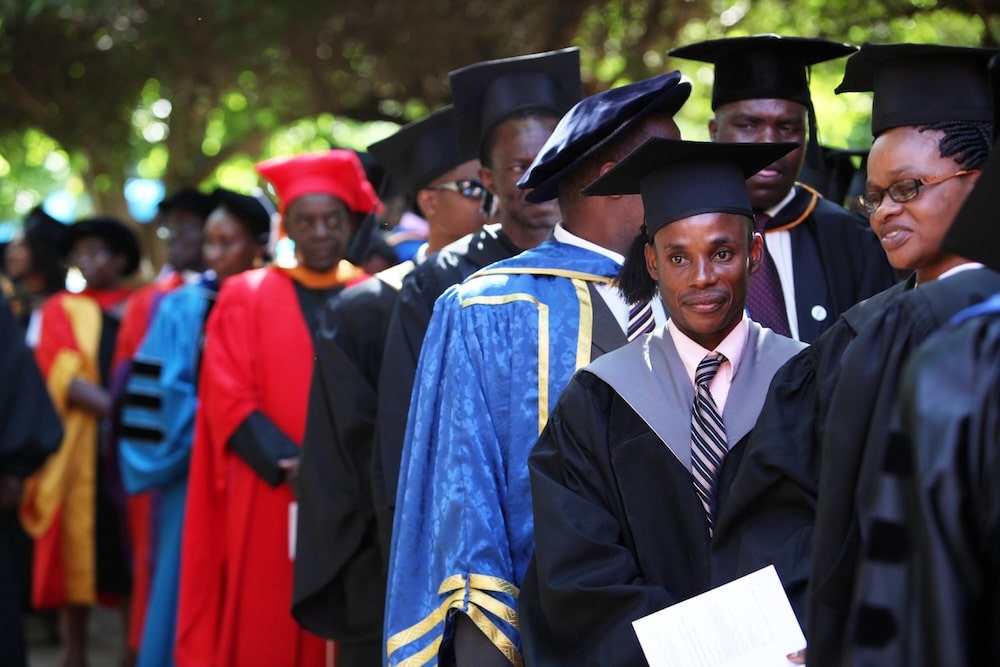Annual Conference Leaders Make Plans for Eight-Year Assessment Process
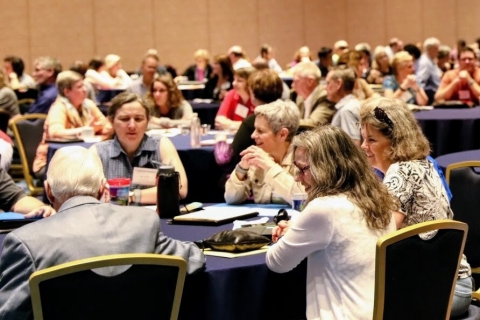
The General Board of Higher Education and Ministry (GBHEM) hosted a three-day training, February 19-21, for Annual Conference leaders focused on understanding, developing and implementing the Eight-Year Assessment (EYA) as sanctioned by the 2016 General Conference and described in paragraph 349 of the “Book of Discipline.” The training provided insights into clergy wellness, occupational burnout and spiritual vitality.
The EYA requires clergy to engage in a six-month series of personal and professional assessment and development trainings every eight years. The actual process, design and implementation that each Annual Conference will follow is determined by the Cabinet and Board of Ordained Ministry, in consultation with the Chairs of the Orders of Deacons and Elders and Fellowship of Local Pastors, many of whom attended the training.
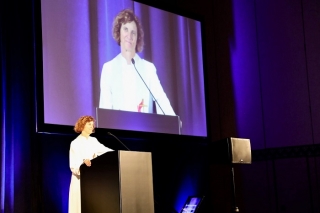
The event opened with worship and a message from Bishop Laurie Haller, Iowa Annual Conference. “How will an intentional, personal, professional, and spiritual assessment every eight years empower you and your colleagues to stay grounded and remember who you are in Christ? For it can go either way,” preached Bishop Haller. “I believe that Jesus is calling.”
The United Methodist Church to go deep. General Conference is calling our clergy to go deep. And God has called each one of you as conference leaders to go deep. Are you willing to go deep?” Bishop Haller posed a series of questions for attendees to reflect on, discuss and answer throughout the training event.
“If we, as pastors, don’t make our own journey, we can’t help others on theirs,” said Rev. Dr. Kim Cape during opening plenary. Rev. Greg Bergquist, associate general secretary, Division of Ordained Ministry, GBHEM, spoke to the EYA program being a holistic and transformative process for clergy. “We’re fostering intellectual engagement, spiritual and character formation, and leadership development for all clergy. It’s part of an “Ecology of Call” from the first moment of discernment to the decision to retire.” Speaking to the continuous cycle of discernment, Rev. Trip Lowery, director of Young Adult Ministry Discernment and Enlistment, GBHEM, added, “We don’t remain the same. We grow. We develop. We’re not born the same way that we are right now, and in each season of our life and career, we grow better at what we do.”
Clergy Resiliency and Well-Being
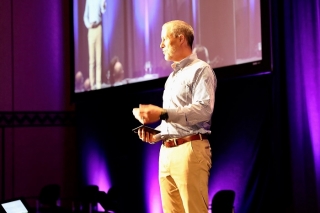
In a keynote address, Matt Bloom, Ph.D., University of Notre Dame, focused on clergy resiliency and the Wellbeing at Work Project. The Wellbeing at Work Project at the University of Notre Dame, with funding from the Lilly Endowment, is engaging clergy through various research methodologies to understand the “rapid changes” of clergy work, as well as how people manage and navigate these changes throughout a life in ministry. During the address, Bloom spoke to the well-being of clergy and their families, what motivates clergy to be engaged in ministry and what disrupts them from experiencing well-being in their work. “All of us face challenges throughout life and throughout our work,” shared Bloom. “Resiliency is one factor in building the capacity to adapt to developing challenges, grow and change over time.” Bloom shared that self-regulation is a muscle that people can strengthen by practicing self-awareness, self-reflectivity and self-control. This should be a priority for clergy, whose daily routines often tax their self-regulating capacity.
Maximizing Clergy Effectiveness
“Annual evaluation of clergy performance is critical for setting goals and ensuring that the clergy and church are working together to meet the mission and ministry goals of each appointment setting,” said Meg Lassiat, executive director of Candidacy and Conference Relations, GBHEM. “It plays a key role in providing information about trends in ministry performance and helping to establish future development goals.”
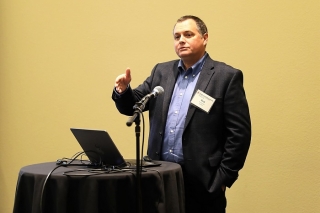
To help pastors and congregations better meet the conference’s and local church’s mission and ministry goals, GBHEM has engaged in 10 years of research with Richard DeShon, Ph.D., Department of Psychology, Michigan State University. This research helped to identify the components of effective ministry for church pastors and ultimately helped to develop an instrument called Effective Ministry 360 (EM360), for pastors, staff/pastor-parish relations committees (S/PPRC), district superintendents, and bishops to recognize and gauge pastoral effectiveness. This process includes a 360-degree survey that focuses on the pastor’s ministry in a local church and then guides the pastor and S/PPRC to set goals together for the local church’s mission and ministry and establish an action/formation plan for how the congregation and pastor will partner to meet these goals. As designed, it fits well into supporting Annual Conferences and clergy in meeting the requirements of the EYA.
Twelve workshops were offered during the training, giving attendees an opportunity to dig deeper into EM360 and various aspects of the EYA. Workshop topics included clergy health and wellness, theological education, financial health for clergy and psychological health. Full descriptions of the workshops and who led them can be found HERE.
Holistic Clergy Health
Throughout the training there was an added focus on physical well-being. Attendees were invited to participate in yoga or a morning walk/run and light stretches were led each day by Leah Holzwarth, Center for Health, Wespath Benefits and Investments. Holzwarth presented an afternoon plenary focused on clergy health and the importance of total body wellness. “The clergy profession creates unique challenges to personal well-being,” said Holzwarth, who shared key findings from the Clergy Wellbeing Survey conducted by Wespath. “When we work on one area of our well-being, we see the effects across the whole. Sometimes one dimension may need to be a higher priority, and that’s okay. Clergy well-being is essential for the vitality and mission of the church.”
A Model of Success
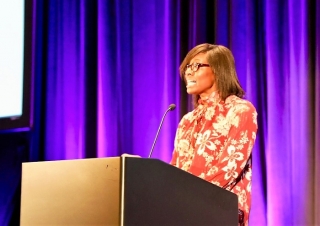
Aleze Fulbright and Russ Abel of the Indiana Annual Conference shared the success with the Called to Fruitfulness model which helps them live into the requirements of the EYA. The program has been in place since 2015 and is an initiative for Elders and Deacons to celebrate their five-year anniversary interval of full connection in The United Methodist Church. Through the program, clergy are invited to participate in an eight-month process of personal and professional assessment on the anniversary of their full connection ordination in five-year intervals. This process cultivates a culture of affirmation for responding to the call and an eagerness to continue to be developed.
Effective Ministry Through Accountability
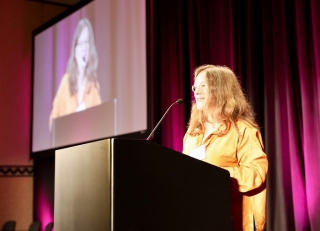
Rev. Jane Leach, Ph.D., principal, Wesley House Cambridge, connexional director of supervision in the Methodist Church of Great Britain, and author of “Pastoral Supervision: A Handbook,” presented the closing keynote address on pastoral supervision as accountable support for effective ministry. Drawing on the experience of the introduction of mandatory supervision for clergy in the British Methodist Church, she offered reflections on the kind of intentional accompaniment that might resource the EYA and raised some of the logistical issues involved in implementing a system of supervision for this purpose. “In ministry we are not only invited to respond to God’s call, but continually to equip ourselves for it and be accountable to one another for the responsible exercise of that ministry,” said Leach. She explained that supervision is a reflective and exploratory process that needs to go deeper than the surface level, because by doing so, it will push someone out of their comfort zone and perhaps they will discover something they never expected.
Leach reviewed the “three-legged stool” model devised by Inskipp and Proctor as it relates to supervision for effective ministry. The three “legs” Leach discussed are normative (what are the rules? what are the measures? what are the sanctions?), formative (what are the goals? what needs learning? what resources are available?) and restorative (who is the person? how is the person? what support is needed?). All three “legs” are required for a successful assessment of each aspect of a person’s ministerial career. Each Annual Conference received a copy of Leach’s book which details this methodology further. Her full presentation is available to view online HERE.
Next Steps and Action Plan
Bergquist concluded the meetings by sharing that additional conversations are planned for Leach, DeShon and Bloom to discuss effective ministry and provide additional guidance and resources for Annual Conference EYA teams. The information gathered can be used to set reasonable goals across the conferences. “At GBHEM, we are looking at how this affects the candidacy process. We’re looking at it more broadly to see if there is a systemic change that we need to make across the board.”
For more information about GBHEM, EYA and the Candidacy Office, please visit www.gbhem.org.
About GBHEM: As the leadership development agency of The United Methodist Church, the General Board of Higher Education and Ministry’s mission is to build capacity for United Methodist lay and clergy leaders to discover, claim and flourish in Christ’s calling in their lives, by creating connections and providing resources to aid in recruitment, education, professional development and spiritual formation. Every elder, deacon and licensed local pastor benefits from our training and candidacy programs. Many young adults find help in clarifying their vocation and God’s call in their lives through our leadership and discernment programs. Follow us on Twitter and Facebook: @GBHEM.
Related Posts
The General Board of Higher Education and Ministry (GBHEM) is excited to announce the launch of "Connexion," a new initiative that highlights the impact and stories of United Methodist-related institutions across the United States, fostering a deeper sense of community, support, and transformation across the denomination. What is Connexion? United...
Roland Fernandes, general secretary of the General Board of Global Ministries (GBGM) and the United Methodist Committee on Relief (UMCOR), has assumed leadership of the General Board of Higher Education and Ministry (GBHEM), effective July 1, 2024. Fernandes has served since the fall of 2020 as general secretary of GBGM and...
The process of uniting knowledge and vital piety is a theological core value of the Wesleyan tradition, The United Methodist Church, and the General Board of Higher Education and Ministry (GBHEM), which guides United Methodist higher education ministries. United Methodists are called to support principled Christian leaders around the...
